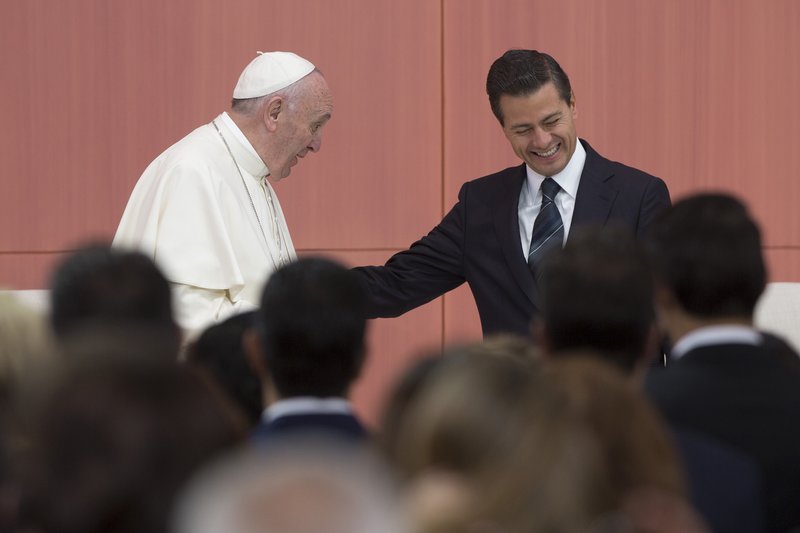MEXICO CITY -- Conservatives from all corners of the country converged on Mexico City on a recent Saturday for an event dubbed The National March for the Family, which took aim at the president's plan to enshrine same-sex marriage in the constitution.
The lesbian, gay, bisexual and transgender community and its allies held a counterprotest, waving rainbow flags and carrying pictures of former Presidents Benito Juarez and Plutarco Elias Calles -- lionized as heroes of the secular state, figures who curbed Catholic Church privileges in the 19th and early 20th centuries.
These contradictory images symbolize a growing conflict in Mexico, where the religious right is rising as a political force, with both conservative Catholics and members of the growing evangelical community attempting to influence Congress and mobilize the masses.
"This is a clash between the secular state and the sectors that don't accept the secular state," said Ilan Semo, a historian at the Jesuit-run Iberoamerican University in Mexico City.
The modern Mexican state was created by revolutionaries at odds with the Catholic Church. For decades, Mexico was considered the most anti-clerical country in Latin America outside of Cuba, despite the fact that the country is overwhelmingly Catholic. Census data shows that 83 percent profess the faith.
But politicians have punted the old protocols over the past 25 years as they have sought the blessing of bishops, appeared publicly with prelates and kissed the pope's ring -- unthinkable a generation ago.
The use of religious symbolism is increasing: Andres Manuel Lopez Obrador, who is among the front-runners for the 2018 presidential election, christened his new party with the acronym Morena -- also a name for the popular national patroness Our Lady of Guadalupe.
The country's expanding evangelical and non-Catholic congregations are becoming politically active, too, having started their own grouping, known as the Social Encounter Party.
The Institutional Revolutionary Party ruled for seven decades over a one-party system before the opposition won the presidency in 2000. Now, in a competitive democratic system, the Revolutionary Party increasingly finds itself facing a ceiling of support in the mid-30 percent range and needing new sources of votes. That is one reason it has openly courted the Catholic Church and evangelicals, said Carlos Bravo Regidor, a professor at the Center for Research and Teaching in Economics.
It is a change in a country where, for much of the 20th century, the church had no legal status and was barred from owning property. Relations between church and state were restored only in 1992, when Mexico and the Vatican established diplomatic ties and a raft of religious restrictions were lifted.
The Mexican Catholic Church -- which has put a priority on religious freedom, the teaching of religion in public schools and removing restrictions on its ability to own radio and television stations -- had previously attempted to make incursions into politics, pushing back in the 1970s against health officials promoting family planning.
Revolutionary Party governments of the era prevailed. But observers such as Semo express some doubts about President Enrique Pena Nieto's ability to resist church pressure to abandon his same-sex-marriage initiative as his approval rating hovers at less than 25 percent -- the product of scandals over corruption, the security forces and the decision to invite U.S. presidential candidate Donald Trump to Mexico.
"The difference [now] is that no president has been this unpopular," Semo said.
A Section on 10/09/2016
